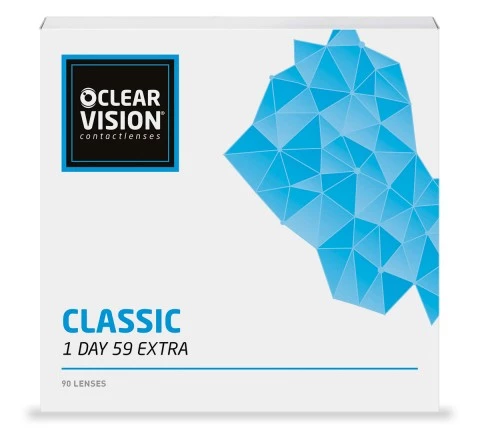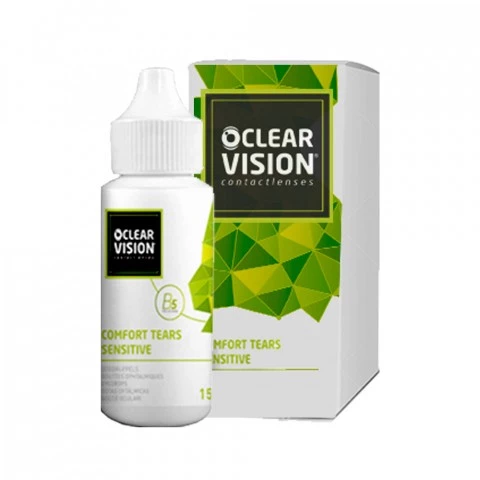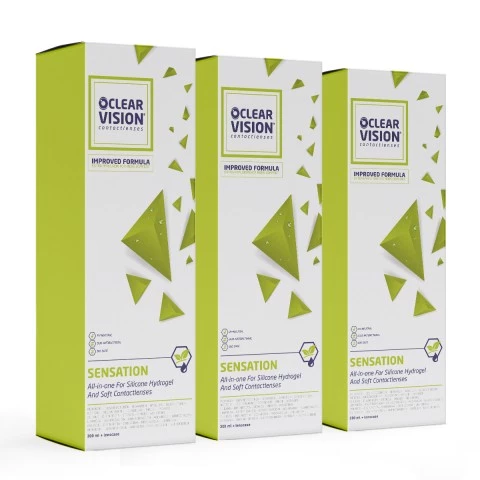
What can I do about itching contact lenses?
If you wear contact lenses, you must be familiar with the feeling of itchy eyes. When you're tired, work in a dry or dusty environment or have worn your lenses for too long, it can feel like your contact lenses are trying to get out of your eyes. Can this hurt your eyes? Do you need other contact lenses? What can you do about it?
Why do eyes itch when wearing contact lenses?
Have you ever experienced an itchy sensation in your eyes while wearing contact lenses? If so, you're not alone. This common issue can be caused by a variety of factors, including dryness, allergies, and even the type of contact lenses you're wearing.
One possible cause of itchy eyes while wearing contact lenses is dryness. When your eyes are dry, they can become irritated and itchy, which can be exacerbated by the presence of contact lenses. This is because contact lenses can absorb moisture from your eyes, making them even drier and more prone to irritation. To combat this issue, you may want to try using eye drops specifically designed for contact lens wearers.
Another possible cause of itchy eyes while wearing contact lenses is allergies. If you're allergic to something in your environment, such as pollen or pet dander, your eyes may become itchy and irritated when you wear contact lenses. To alleviate this issue, you may want to try switching to daily disposable contact lenses, which can help reduce your exposure to allergens.
Overall, itchy eyes while wearing contact lenses can be a frustrating and uncomfortable experience. However, by identifying the underlying cause of your symptoms and taking steps to address it, you can help alleviate your discomfort and enjoy clear, comfortable vision once again.
Can this be harmful for your eyes?
Have you ever wondered if staring at screens all day can be harmful for your eyes? Well, the short answer is yes. The long answer is a bit more complicated.
Firstly, let's talk about blue light. Blue light is a type of light that is emitted from electronic devices such as phones, laptops, and televisions. It has been shown to disrupt our sleep patterns and cause eye strain. This is because blue light has a shorter wavelength and higher energy than other colors of light, making it more difficult for our eyes to focus.
Secondly, prolonged screen time can lead to a condition called Computer Vision Syndrome (CVS). Symptoms of CVS include headaches, dry eyes, blurred vision, and neck and shoulder pain. This is because when we stare at screens for extended periods of time, we tend to blink less, which can cause our eyes to become dry and irritated. Additionally, the blue light emitted from screens can cause our eyes to work harder, leading to eye strain and headaches.
So, what can we do to protect our eyes from the harmful effects of screens? One solution is to take frequent breaks and practice the 20-20-20 rule. This means taking a 20-second break every 20 minutes and looking at something 20 feet away. Additionally, investing in blue light blocking glasses can help reduce the amount of blue light that enters our eyes. And lastly, don't forget to blink! It may sound silly, but consciously reminding yourself to blink can help prevent dry eyes and eye strain.
In conclusion, while screens have become an integral part of our daily lives, it's important to be mindful of the potential harm they can cause to our eyes. By taking breaks, investing in blue light blocking glasses, and remembering to blink, we can help protect our eyes and prevent long-term damage.
What can you do to end itchy eyes?
Do you suffer from itchy eyes? It can be a frustrating and uncomfortable experience. Here are some tips to help you end the itchiness and get back to feeling comfortable.
Firstly, try to avoid rubbing your eyes. This can actually make the itchiness worse and can even lead to infection. Instead, try using a cold compress or eye drops to soothe the irritation. There are many over-the-counter eye drops available that can help relieve itchiness, but be sure to read the labels carefully and choose one that is suitable for your specific symptoms.
Secondly, consider the environment around you. Allergens such as pollen, dust, and pet dander can all contribute to itchy eyes. Try to keep your home clean and dust-free, and avoid spending time outside during peak allergy seasons. If you do need to go outside, consider wearing sunglasses to protect your eyes from irritants.
In addition, make sure you are getting enough rest and staying hydrated. Lack of sleep and dehydration can both contribute to dry, itchy eyes. So, make sure you are getting enough sleep and drinking plenty of water throughout the day.
Lastly, if your symptoms persist or become more severe, it may be time to see a doctor. They can help determine the underlying cause of your itchy eyes and recommend appropriate treatment options.
In conclusion, itchy eyes can be a nuisance, but there are many things you can do to alleviate the discomfort. By avoiding rubbing your eyes, managing your environment, staying hydrated, and seeking medical attention if necessary, you can put an end to the itchiness and get back to feeling comfortable.
Conclusion
Itchy eyes can be caused by a variety of factors, including dryness, allergies, and prolonged screen time. To combat dryness, eye drops designed for contact lens wearers can be used. Switching to daily disposable contact lenses can help reduce exposure to allergens. To protect eyes from the harmful effects of screens, taking frequent breaks, investing in blue light blocking glasses, and remembering to blink can help prevent long-term damage. To alleviate itchy eyes, avoid rubbing them and use a cold compress or eye drops instead. Keeping the environment clean and dust-free, wearing sunglasses outside, getting enough rest, and staying hydrated can also help. If symptoms persist or become more severe, it is recommended to see a doctor. There are many over-the-counter eye drops available that can help relieve itchiness, but it is important to read the labels carefully and choose one that is suitable for specific symptoms. By taking these steps and using appropriate products, people can alleviate itchy eyes and feel comfortable again.

Daily lenses
Take a look at our Daily lenses, perfectly comfortable every day without having the trouble of changing and cleaning your lenses every day.
Eye drops
Take a look at our selection of eye drops, that you can use at any time to hydrate and rehydrate your eyes using natural products.

 EU
EU 








